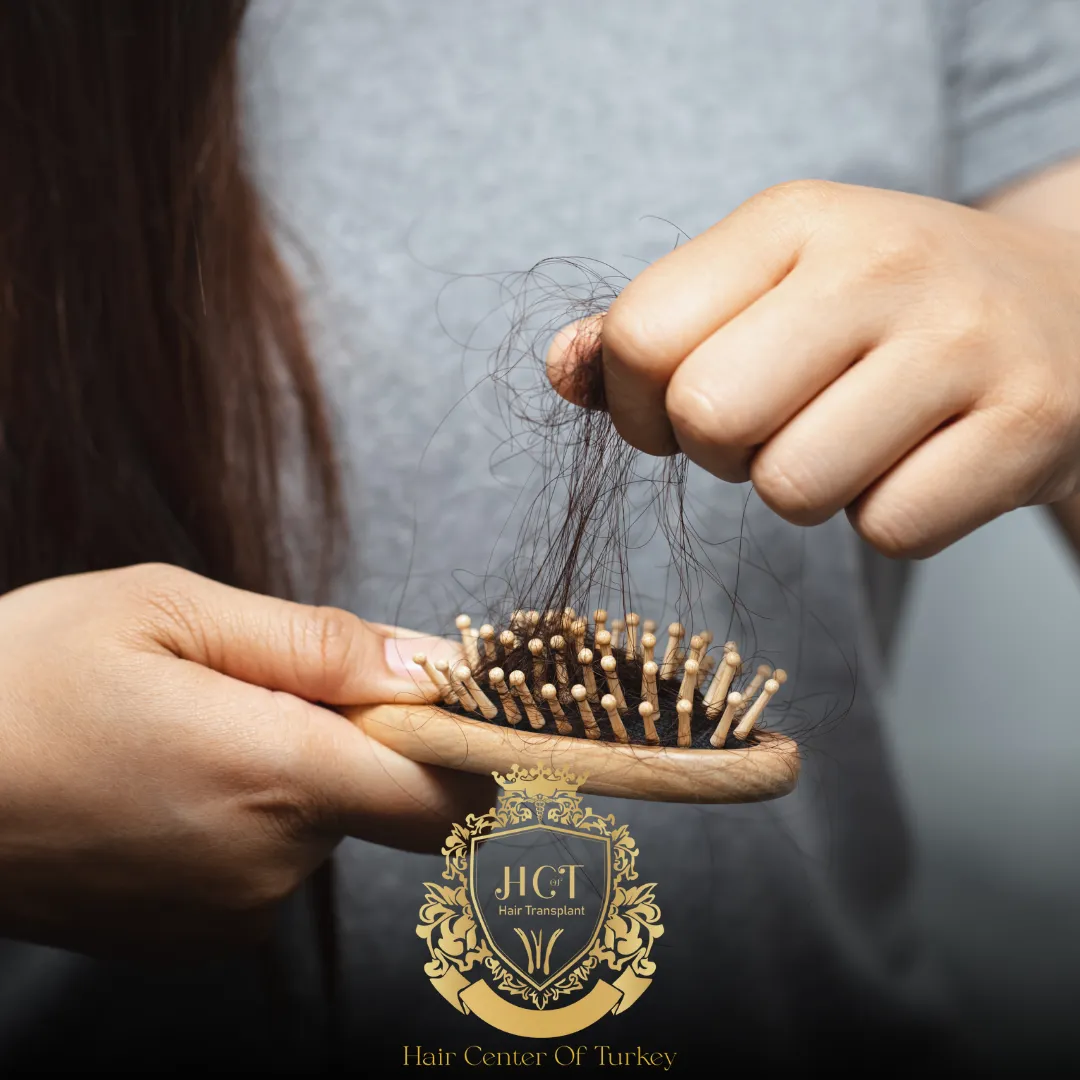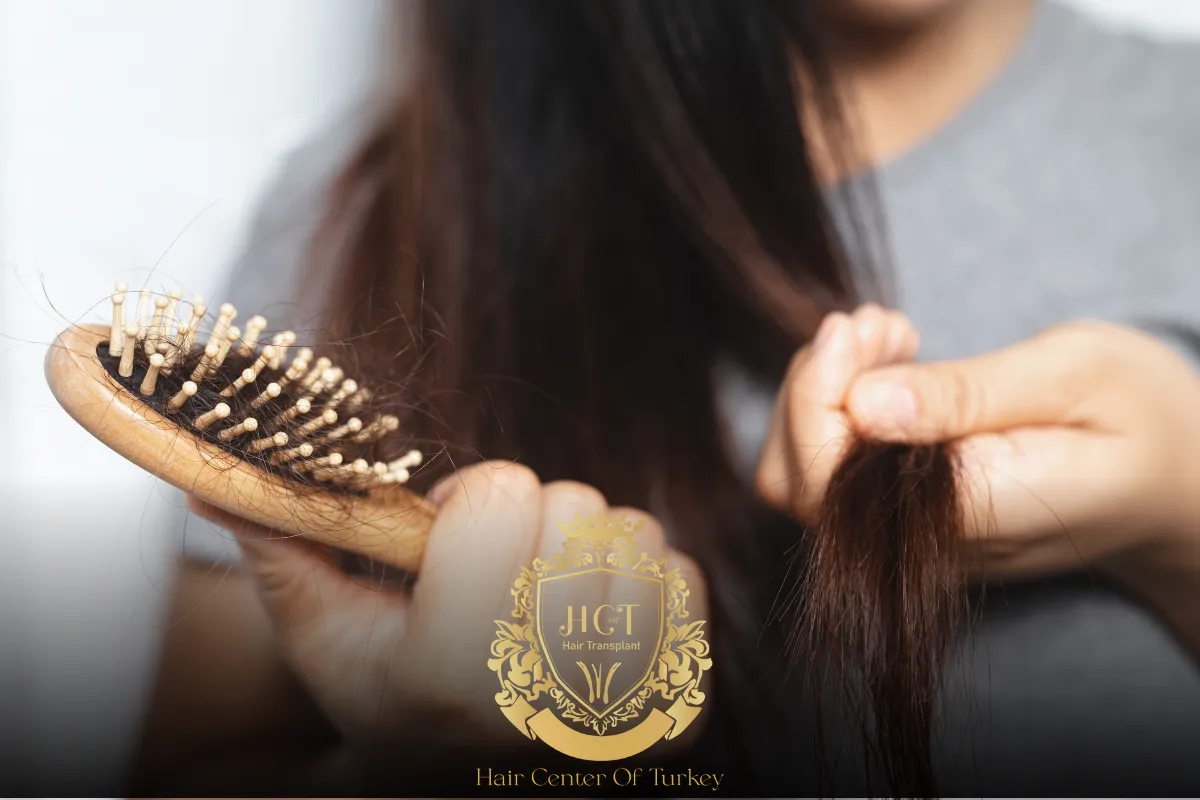
What Are The Most Effective Ways To Prevent Hair Breakage?
Hair breakage happens when the hair shaft becomes weak and snaps, often from heat, chemical treatments, friction, and dryness. To prevent it, wash gently, condition consistently, detangle carefully, and limit high heat and tight styles. Regular trims, UV protection, and a protein-rich diet help hair stay stronger and retain length.
Table of Contents
Hair Breakage Vs. Hair Loss: What’s The Difference?
Hair loss involves shedding from the root, so you may see whole strands with a bulb at the end. Breakage happens along the shaft, so you notice shorter pieces, frizz, and split ends.
Both can occur at the same time. If you are unsure which one you’re dealing with, a scalp and hair assessment can clarify the cause and the right plan.
Why Does Hair Breakage Happen?
Breakage usually comes from repeated stress on the hair cuticle. Heat styling, bleaching, frequent coloring, and chemical straightening can weaken the shaft and make strands porous.
Friction from brushing, rough towels, and tight hairstyles adds mechanical damage. Dryness from sun, wind, chlorine, and saltwater can also reduce elasticity and make hair snap more easily.

Gentle Washing Habits That Protect The Hair Shaft
Choose A Mild Shampoo
Wash often enough to keep the scalp comfortable, but avoid harsh cleansing that strips natural oils from the lengths. Many people do well with 2–3 wash days per week, adjusting based on oiliness, sweat, and product buildup.
Condition Every Time You Wash
Conditioner reduces friction and improves slip, which helps prevent snapping during detangling. Apply conditioner mainly to mid-lengths and ends, then rinse thoroughly.
Use Lukewarm Water And A Soft Towel
Very hot water can increase dryness. After washing, squeeze out water gently and use a soft towel or microfiber wrap instead of rubbing, which roughens the cuticle.
Styling Changes That Reduce Breakage Fast
Limit Heat And Use Heat Protection
Blow dryers, straighteners, and curling tools can weaken hair when used frequently. If you use heat, keep the temperature moderate, avoid repeated passes, and apply a heat protectant before styling.
Avoid Tight Hairstyles And Traction
Tight ponytails, braids, and buns can cause snapping, especially around the hairline. Choose looser styles and vary the placement of hair ties to reduce stress in one area.
Be Careful With Chemical Treatments
Bleaching and relaxing change the hair structure and can increase fragility. Spacing out chemical services and using bond-support products between appointments can help the hair feel stronger.
Daily Habits That Help Hair Stay Strong
Detangle The Right Way
Hair is most fragile when wet, yet brushing dry tangles can also cause snapping. Use a wide-tooth comb or a gentle detangling brush and start at the ends before moving upward.
On wash days, detangle with conditioner in the hair to reduce pulling. If your hair tangles easily, consider a leave-in conditioner for extra slip.
Protect Hair While You Sleep
Friction at night can cause split ends and breakage. A silk or satin pillowcase and a loose braid or bun can reduce tangling and mechanical stress.
Protect From Sun, Chlorine, And Saltwater
UV exposure and swimming can dry hair and make it stiff. Wear a hat in strong sun, rinse after swimming, and condition the lengths to restore softness.
Nutrition And Hydration For Less Breakage
Hair is mostly protein, so steady protein intake supports strength and elasticity. Iron, zinc, vitamin D, and vitamin B12 also matter when levels are low, but supplements are best guided by testing.
Hydration supports overall hair quality, especially in hot weather. If you are dieting aggressively or skipping meals, breakage and shedding can become more noticeable.
Do Trims Help Prevent Breakage?
Trims do not change growth at the root, but they remove split ends that can travel upward and lead to bigger breaks. For many hair types, trimming every 8–12 weeks helps the ends look healthier and reduces tangling.
When To Seek Professional Advice
If you have sudden patchy loss, scalp pain, heavy redness, or thick scaling, get assessed. It is also worth checking in if breakage is paired with increased shedding, a widening part, or thinning at the temples or crown.
A clinician can help rule out iron deficiency, thyroid changes, scalp inflammation, or hereditary-patterned hair loss. A clear diagnosis prevents wasted time and helps you build a plan you can maintain.
FAQ
What is the best thing to prevent hair breakage?
Gentle handling plus regular conditioning and minimizing heat/chemical damage best prevents hair breakage.
What is my body lacking if my hair is breaking?
Often moisture and protein; occasionally iron or zinc deficiency contributes.
Why is my hair so prone to breaking?
Heat styling, bleaching, rough brushing, friction, and low moisture weaken the hair shaft.
What vitamin are you lacking if your hair is brittle?
Vitamin D can be low, but brittle hair more often reflects iron deficiency.
What is the main cause of hair breakage?
Chemical and heat damage causing weakened cuticle and cortex is the main cause.




